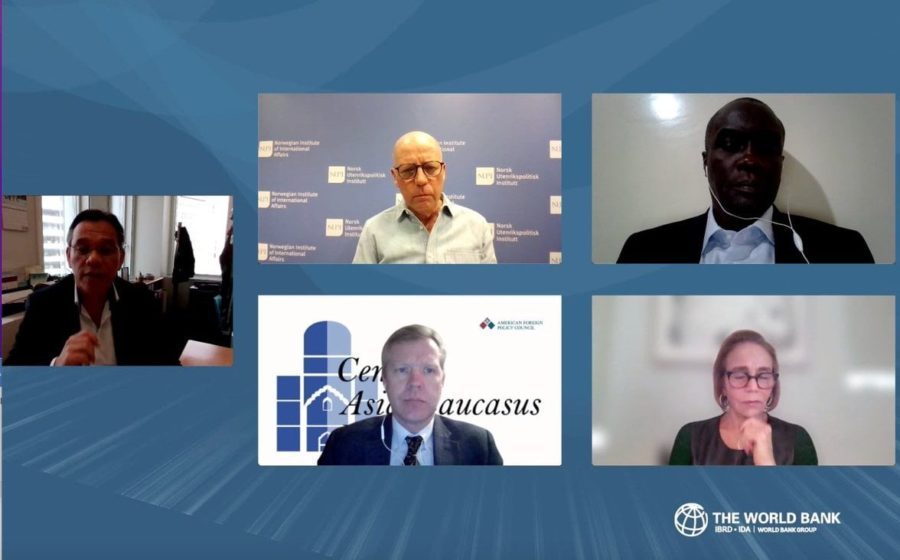The Fragility Forum is a biennial event that brings together policymakers and practitioners from humanitarian, development, peace and security communities; public and private sector; academia; and civil society, exchanging innovative ideas and knowledge to improve development approaches in fragile, conflict and violence-affected (FCV) settings to foster peace and stability. On 8 March, PREVEX-researchers contributed to the panel: ‘Can Community Resilience be Strengthened Amidst Multiple Fragility Risks? Lessons from the Sahel and Central Asia.’
Two PREVEX-researchers participated in the panel: PI Morten Bøås (Norwegian Institute of International Affairs – NUPI) and Abdoul Wahab Cissé (The Alliance for Rebuilding Governance in Africa – ARGA), accompanied with Svante Cornell (Director at Central Asia-Caucasus Institute & Silk Road Studies Joint Center), Gloria La Cava (Senior Social Scientist at Social Sustainability and Inclusion Global Practice, World Bank) and Sascha Djumena (Country Program Coordinator at World Bank).
Based on research findings from the Sahel, several explanatory factors for why people join violent extremist groups were presented, and Cissé argued that they do so because extremist groups can offer them something the state cannot. However, most people do not join or support violent extremist groups, and there is a need to understand these local foundations of resilience better, Bøås argued. The researchers further stressed the importance of communicating with the youth and building on existing community resilience to succeed in PVE efforts, distinguishing between communities’ open, subtle and opportunistic resilience.
Open resilience was described as vocal but peaceful forms of resistance, but which can also manifest itself in the establishment of local self-defense groups; subtle resilience as various forms of access negotiations where local communities negotiate with local Jihadi-actors on local issues; and, opportunistic resilience as part of a community’s attempt to negotiate a settlement with armed groups to settle a score with another group in the same community. This is important as most of what we know about community resilience seems to assume a considerable consensus in the local communities. Still, we need to understand better that these communities are not necessarily homogenous but stratified along gender, class, ethnicity, age, etc.

More information on the event and panels can be found here.




